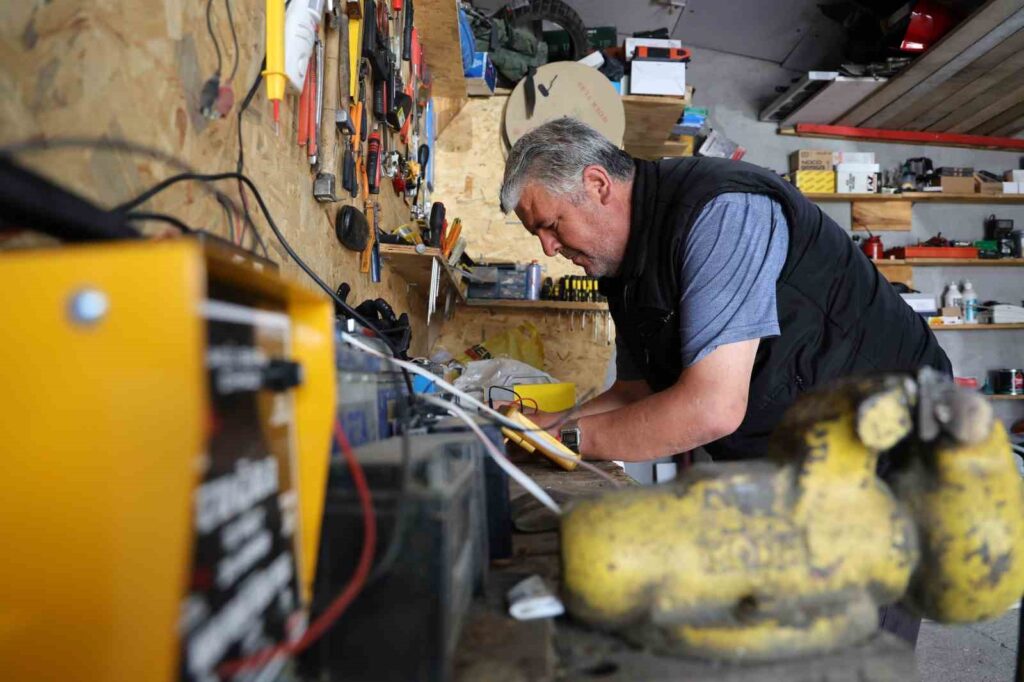Turkish and Australian Scientists’ Collaboration Breakthrough in Battling Bacteria

Turkish and Australian Scientists’ Collaboration Breakthrough in Battling Bacteria
Researchers Dr. Ferdiye Taner from DESAM Research Institute and Assoc. Prof. Dr. Steve Petrovski collaborated on an international project, isolating three bacteriophages from the waters of a natural pond on campus, offering hope in combating multi-drug resistant Pseudomonas aeruginosa, the most common source of hospital infections. The increasing resistance of bacteria to antibiotics is a condition recognized by the World Health Organization (WHO) as a global public health threat, making the treatment of many bacterial infections challenging. Bacteriophages, however, present one of the most effective alternatives to antibiotics in treating bacterial infections. Through studies conducted via international collaborations by Near East University, newly isolated bacteriophages offer a robust alternative against antibiotic-resistant bacteria threatening human health worldwide.
Bacteriophages isolated from the natural pond by Turkish and Australian scientists offer hope against antibiotic-resistant hospital infections. The bacteriophages, central to the project “Investigation of the Molecular Mechanism of Antibiotic Resistance Spread in Pseudomonas aeruginosa Strains and Exploration of New Bacteriophages as an Alternative Treatment Approach,” conducted in collaboration between Near East University and La Trobe University in Australia, represent an effective biological combat method against bacteria. Coined from the terms “bacterio” (bacteria) and “phage” (to eat), bacteriophages enter bacterial cells, inject their genetic materials, replicate within the cell, ultimately causing the bacterial cell to burst, and then release, capable of infecting subsequent target bacterial cells.
In the project led by Dr. Ferdiye Taner from DESAM Research Institute and Assoc. Prof. Dr. Steve Petrovski from La Trobe University, Prof. Dr. Ahmet Başustaoğlu and Assoc. Prof. Dr. Aylin Üsküdar Güçlü from Başkent University also participate. Near East University Rector Tamer Şanlıdağ, Dr. Gökçe Akan, Dr. Gülten Tuncel from Near East University’s Kit Production Laboratory, Prof. Dr. Murat Sayan, and Doruk Kaynarca from DESAM Research Institute are also part of the project team. Additionally, Vaheesan Rajabal from La Trobe University contributes to the project as well.
Prof. Dr. İrfan Suat Günsel: “This significant step once again demonstrates the power of international collaborations in scientific advancement.” Near East Institution Board of Trustees Chairman Prof. Dr. İrfan Suat Günsel emphasized that the international project conducted by Turkish and Australian scientists yielded promising results against antibiotic resistance, a global threat to human health. Prof. Dr. Günsel, reminding that the university collaborates with over 150 universities and institutions worldwide, stated, “With the power of science and collaboration, we will continue to contribute decisively to the fight against health threats faced by humanity.”
Prof. Dr. Tamer Şanlıdağ: “We will continue to support scientific research.”
Prof. Dr. Tamer Şanlıdağ, a microbiologist himself and involved in the project, expressed his happiness at the fruitful collaboration with La Trobe University against antibiotic resistance, a global health threat. He announced plans to establish a “Bacteriophage Research Center” as part of DESAM Research Institute to facilitate research on bacteriophages, aiming to further advance the studies. Prof. Dr. Şanlıdağ affirmed, “We will continue to support scientific research that gives us hope through the sharing of knowledge and skills.” He sincerely congratulated all colleagues, especially our researcher Dr. Ferdiye Taner and Assoc. Prof. Dr. Steve Petrovski from La Trobe University, for this significant step taken for humanity.
Dr. Ferdiye Taner: “The three new bacteriophages we obtained offer great hope in our fight against antibiotic resistance.”
Dr. Ferdiye Taner, one of the project leaders from DESAM Research Institute, highlighted that the project they conducted, resulting in the production of three new bacteriophages, offered great hope in the fight against antibiotic resistance. Dr. Taner mentioned their ongoing intensive research on the genetic structures of bacteriophages and their infection mechanisms, aiming to better understand the bacterial species that bacteriophages can target and develop more effective treatment methods. She emphasized that with the discovery of new bacteriophages, they would continue to work towards producing a robust solution that could be used as an alternative treatment approach and to prevent the development of antibiotic resistance, addressing the globally increasing concern of deaths caused by antibiotic-resistant bacteria.







